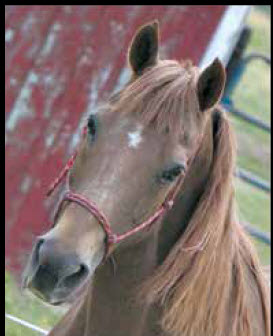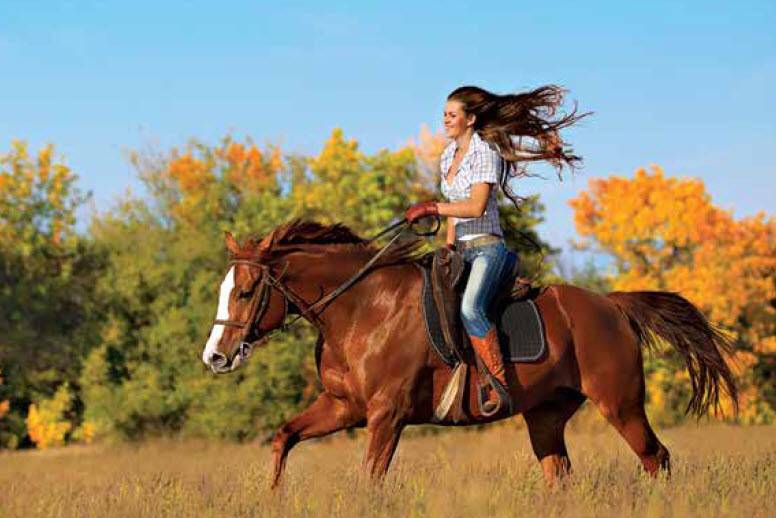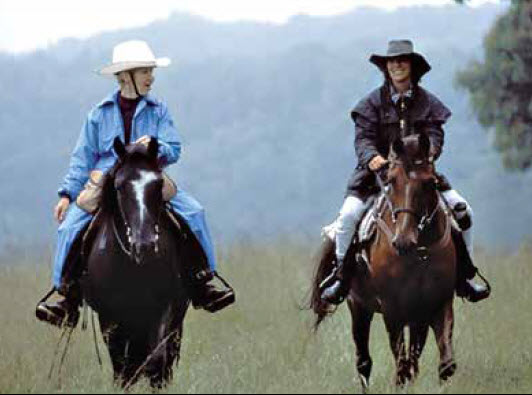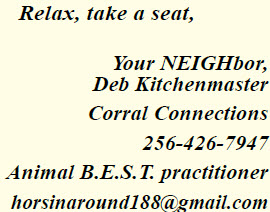Seats – Horse Whispering
 By: Deb Kitchenmaster
By: Deb Kitchenmaster
On November 6, 2018, we voted for specific governmental seats. A governor’s seat where someone would oversee a state, a Senate seat, a seat in the House of Representatives, a seat for a judge to hear cases and decree orders and affecting lives, both individually and corporately. Regardless of what level the “seat” is open and then filled; each seat is important and is a platform for a voice to be considered throughout our land. Yes! Your vote counts!
The 8th – century BC Jewish prophet, Isaiah, wrote, “For unto us a child is born, unto us a son is given: and the government shall be upon his shoulder: and his name shall be called Wonderful, Counselor, The Mighty God, The everlasting Father, and The Prince of Peace.” Shoulder indicates acceptance of the burden of a responsibility; the phrase refers to kingly leadership rather than religious leadership.

One day, Jesus entered the temple courts and drove out all who were buying and selling there. He overturned the tables of the money changers and the seats of those selling doves. (Matthew 21:12) Then there’s that moment when Jesus is teaching and he said, “Watch out for the teachers of the law. They like to walk around in flowing robes and be greeted with respect in the marketplaces, and have the most important seats in the synagogues and the places of honor at banquets.” (Mark 12:39) Yes, Jesus dealt with seats also, didn’t he?
According to Ephesians 2:6, “And God raised us up with Christ and seated us with Him in the heavenly realms in Christ Jesus.’’ Another way of saying that is, “and has raised us up together, and made us sit together in heavenly places in Christ Jesus.” A couple of words defining together are ‘jointly’ and ‘as one’.
Then, in the realm of horsemanship there is your seat! Your seat is important to your horse. Have you heard of the phrase, “You have a quiet seat?” That doesn’t have anything to do with flatulence. It simply means when you ride you are settled (not bouncing all over the place), and you ‘hold’ or ‘sit’ balanced on the back of your horse. You have come to understand your core, and from this place/seat you ride.

Your seat is found when you follow your horse’s gait or motion at the walk (4-beat rhythms), the trot (2-beat rhythms) and the canter (3-beat rhythms). You need strong core muscles to hold your upper body erect and flexible hips to follow the rhythm of your horse’s back as it lifts and rolls in a different motion with each gait. Once you can follow the motion, your body understands the basic feel of your seat, which aids in improving your ride.
This is what it would look like if you were to use your seat to stop your horse. Let’s say your horse is walking. You feel your hips swinging in the rhythm (4-beat) with the horse’s feet — one up, three down. As the horse’s barrel swings left and right, your lower legs pulse left and right. When you want the horse to stop, you take in a deep breath. As you let your breath out, sink into your seat bones. At this point you stop following with your hips. You stop pulsing with your legs. You stop following with your hands. You stop riding while remaining on your horse’s back. Your horse will halt.
Another seat would be what is called an independent seat. An independent seat starts on the ground (not because you have fallen off your horse). The more control a rider develops over his or her own body movements, the more precisely he or she will be able to use body language to communicate with a horse, whether on the ground or from the saddle. Starting on the ground, relaxation is absolutely necessary to the development of an independent seat. Groundwork teaches you to move with relaxation and rhythm so that your horse will move that way too.
The palomino I was riding jolted and ran with all his might. The jolt threw me off balance. It was relaxation of everything inside me and my hips synchronizing with the gallop (4-beat) that brought the horse to a halt with me remaining on. I was nearly unseated, managed to keep my seat, and at last I rested into a quiet seat, and you can, too!
